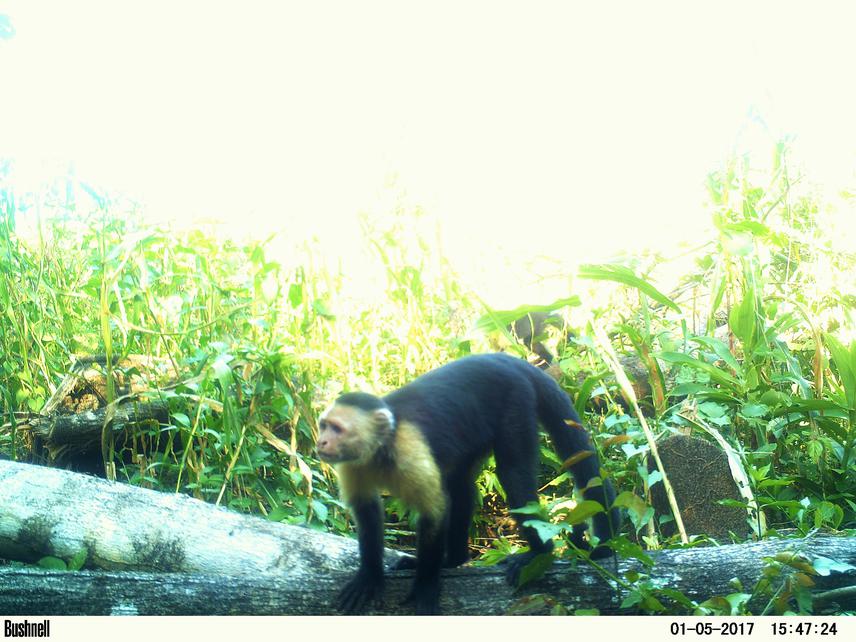The aim of this project is to document socioecological information of the interface of Central American White-faced Monkey (Cebus imitator) and farmers in Southwestern Panama. More specifically we will:
• Analyse crop feeding patterns of C. imitator in terms of frequency, timing and duration of crop feeding events and crop loss measurements.
• Explore farmers’ perceptions toward crop feeding behaviour of C. imitator and their conception of the specie importance and conservation.
• Carry out workshops to promote farmers’ participation in C. imitator conservation.

The Central American white-faced monkey (Cebus imitator) has developed an opportunistic behaviour to use the resources offered by farmlands near natural forests and feed on crops. This phenomenon has led many farmers to perceive this primate as a destructive specie, promoting harassment, and apply lethal techniques to protect crops from damage by monkeys. One of the techniques used is hunting, which is an additional threat facing C. imitator in Southwestern Panama and can lead - if not stopped or increased - to a degradation in its populations in areas where the species still persists. In order to reduce this threat and contribute to the long-term maintenance of white-faced monkey populations, this work is proposed.
This project was conceived out of an identified need for the inclusion of farmlands in primate conservation in Panama, mainly in Southwestern, where 52% of the territory is agricultural lands. Using camera trapping, behavioural sampling and crop damage assessment, information will be collected to understand what aspects define the crop feeding behaviour of C. imitator. By exploring farmer’s perception and willingness to adopt sustainable practices, this work will develop approaches to improve white-faced monkey welfare. The ecological and socio-cultural information generated will be a baseline to design a community-based program. Through this work we will gather useful scientific information to support C. imitator conservation actions at the forest-farm interface. Through participatory workshops we will open a communication way between conservationists and farmers, allowing information sharing and therefore awareness raising.
